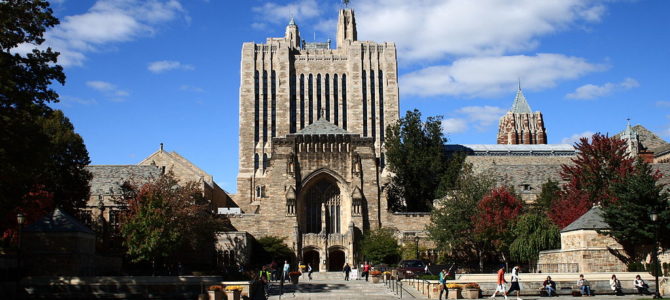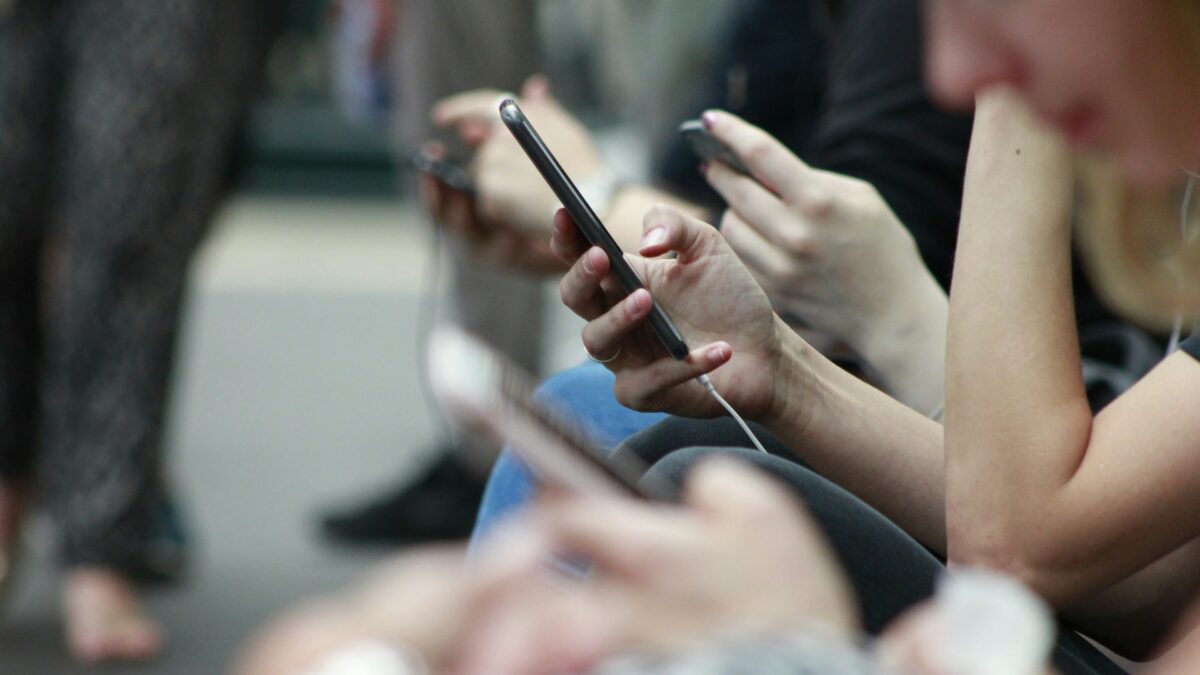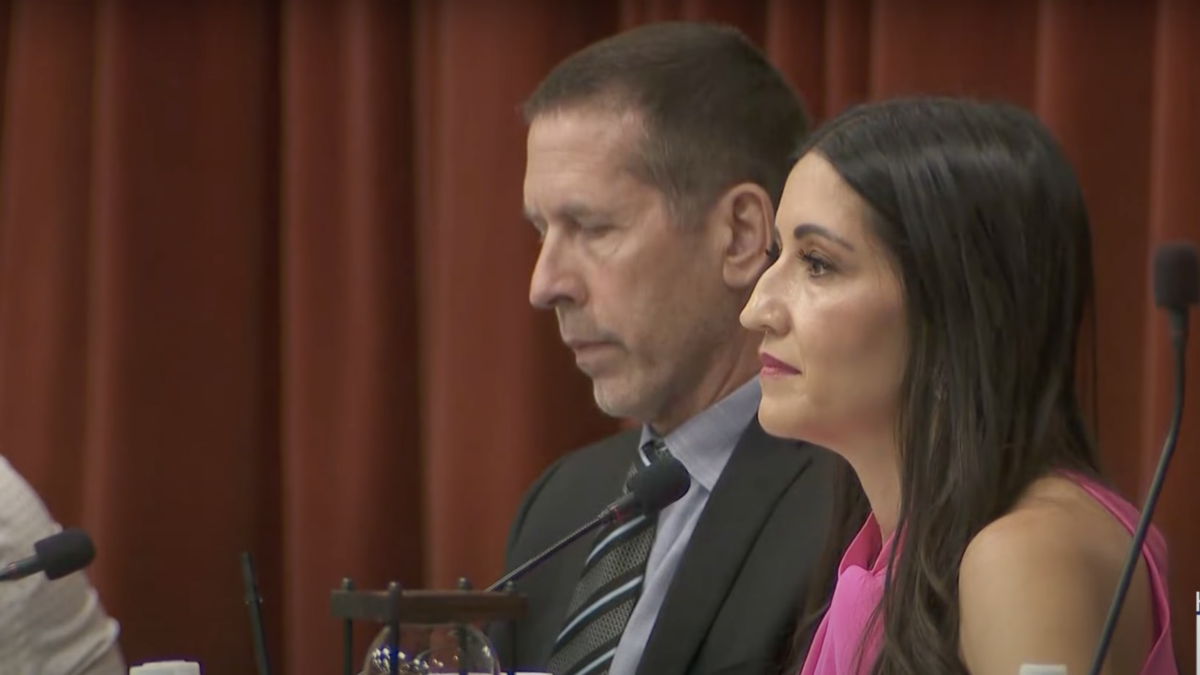
On a recent Sunday evening in New Haven, Connecticut, a visiting priest gave a homily about the importance of Christian love. The gospel reading was Luke 6:27: “But I say to you that listen, Love your enemies, do good to those who hate you, bless those who curse you, pray for those who abuse you. If anyone strikes you on the cheek, offer the other also…”
In an age of political tribalism and social media, the priest reminded us that it is all too tempting to give in to the temptation of striking back at your enemies. But the duty of a Christian is to refrain from that temptation, to pray for your enemies, and to ultimately attempt to forgive.
As a stereotypical Catholic, I don’t usually quote scripture, but those words resonated with me that evening because they came at an appropriate time. I am a third-year student at Yale Law School. Before law school, I attended the Naval Academy and the University of Cambridge, and I served in the Marine Corps. I am also a member of my school’s Federalist Society chapter. (I write in my personal capacity, not on behalf of any organization.)
Earlier that Sunday morning, my friends and I sent out a school-wide email announcement about a guest speaker event for the upcoming week. A lawyer from Alliance Defending Freedom (ADF), the Christian legal group that has won numerous First Amendment cases at the Supreme Court, would be discussing Masterpiece Cakeshop v. Colorado Civil Rights Commission.
Given that ADF has been smeared as a hate group by the Southern Poverty Law Center, we expected some controversy. But what we got was over-the-top even by Yale standards.
Huge Outcry Against Christian Lawyers
The first condemnation was from Outlaws, the law school’s LGBTQ group. They attacked the Federalist Society for inviting ADF to campus and called for a boycott of the event. Over the next 24 hours, almost every student group jumped onto the bandwagon and joined the boycott.
The emails were a veritable alphabet soup of identity groups, including: APALSA (Asian Pacific American Law Students Association); BLSA (Black Law Students Association); SALSA (South Asian Law Students Association); LLSA (Latinx Law Students Association); MLSA (Muslim Law Students Association); MENALSA (Middle Eastern and North African Law Students Association); and JLSA (Jewish Law Students Association).
NALSA (Native American Law Students Association) said ADF employees were not welcome on their “ancestral lands.” The Yale Law Women, Yale Law Student Alliance for Reproductive Justice, and the Women of Color Collective joined, as did the American Constitution Society, the Yale Law Democrats, and the First Generation Professionals.
In addition to the boycott, some students said people who supported ADF’s position should no longer be admitted to the law school. One student emailed a list of the Federalist Society board members (publicly available information) so students would know whom to “thank” for this event.
The event took place two days later. Around 30 people attended. The boycotters decorated the front door with rainbow posters, but mostly stuck to protests and support groups in other rooms. The one disruption occurred near the end of the event, when three students walked in, rifled through empty pizza boxes, and left with a couple leftovers. On their way out, one of the protestors blew us a kiss and gave us the middle finger.
Compared to the undergraduate events that often make the news, our campus controversy was relatively tame. But it still left scars. The amount of vitriol and cyberbullying that came their way brought a couple of my classmates to tears. Some didn’t feel safe on campus. Those of us in our third year of study continued to count down the days to graduation.
This was not our first experience with campus unrest at Yale. Last year, we were embroiled in the controversy over the nomination of Brett Kavanaugh—a distinguished alum of Yale Law School—to the Supreme Court. Over the summer, one-quarter of my classmates signed a petition in which they asserted that “people will die” if Kavanaugh was confirmed to the court.
Days before the Dr. Christine Blasey Ford hearings, hundreds of students (and some faculty members) dressed in black and staged a sit-in in the school’s main hallway. Most classes were cancelled, lunch was provided, and traffic was redirected around the protesters. The walls were decorated with posters saying #IBelieveChristineBlaseyFord and #IStillBelieveAnitaHill.
I came to Yale Law School feeling optimistic and grateful for the opportunity. I knew that I would be in the intellectual minority, but I hoped that I could reasonably disagree with and learn from my peers. A lot of smart people come to this school, I thought to myself. Although we held different political beliefs, we probably shared a common passion for the rule of law.
I was wrong. And now I am deeply disappointed.
These Yale Law Students Are Disgracing Themselves
The anti-Kavanaugh protests were a disgrace. Atticus Finch is supposed to be the role model for our profession, but these people turned their backs on his example. Law students and professors alike willfully abandoned the presumption of innocence—the core principle of our legal system—simply because they didn’t like the jurisprudence of the next Supreme Court justice.
Tensions decreased slightly after Kavanaugh was confirmed, but they never went away. Every email announcement the Federalist Society sent out met a snarky, vitriolic response by progressive students. Members of the first-year class were routinely bullied by their peers. In one case, a student searched through the LinkedIn profile of a conservative classmate, saw the conservative had a connection to ADF, and shared that information with the entire class. Others then demanded a list of all law students who had connections to ADF.
This harassment has become almost routine and takes place with the full knowledge of the school administration. Occasionally, the administration steps in and releases a statement about the importance of civility and community. Yet the threats and intimidation persist, and the perpetrators feel no consequences.
Law school is supposed to be a place for serious thinkers, and you would think that the number one law school in the country should be a cut above the rest. But too often, the adults are nowhere to be found.
All this gets me back to the topic of forgiveness. I will graduate in three months, and I do not want to carry this bitterness with me when I go. It helps that I truly have no regrets about attending Yale. I have been afforded tremendous professional opportunities that would have been unavailable anywhere else.
I have made a close group of friends whom I trust. We share a bond borne out of three years of shared adversity and frustration. Finally, I have been privileged to study under professors I genuinely respect and admire because of their commitment to intellectual freedom and civil disagreement.
But then I walk back to campus for a class and see a protest sign, or I open another email smearing the Federalist Society. Then I feel viscerally angry about what this school has put my friends and me through. It will take a while to finally let go of this anger, and I probably need to put some distance between me and this school. For now, I will just try to stick to my studies, support my friends, and count down the days to graduation.









